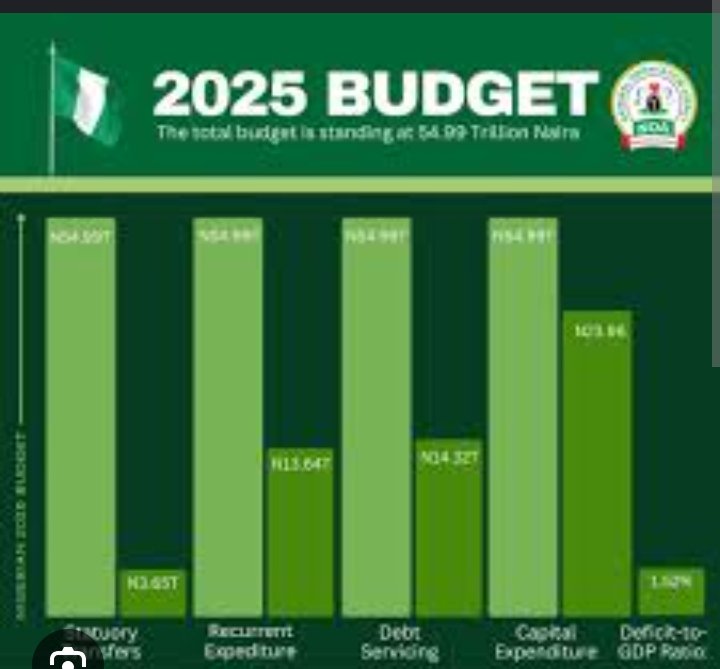
By Ameh Gabriel
Nigeria’s 2025 budget, branded the “Budget of Restoration: Securing Peace and Rebuilding Prosperity,” was presented by President Bola Tinubu to the National Assembly on December 18, 2024. The plan allocates ₦49.7 trillion in government spending and projects ₦34.82 trillion in revenue, resulting in a budget deficit of ₦13.08 trillion, or around 3.89% of GDP .
A significant ₦15.81 trillion (nearly 45% of revenue) is earmarked for debt servicing , while the remaining funds are directed toward strategic sectors:
Defence & Security: ₦4.91 trillion
Infrastructure: ₦4.06 trillion
Education: ₦3.52 trillion
Health: ₦2.48 trillion
Additional expenditures include salary and pensions totaling ₦8.52 trillion, and ₦16.33 trillion specifically on debt servicing jointly making up ₦24.85 trillion, or 54% of a related ₦46.02 trillion figure cited in analysis .
Financial Reality Check:
Economic experts and the IMF warn the budget relies on overly optimistic assumptions such as oil at $75/barrel, production at 2.06 million barrels/day, and inflation dropping from 34.6% to 15% all of which are considered unlikely. IMF suggests recalibration is needed, especially given current oil prices (circa $68/barrel) .
Parliamentary Adjustments:
The budget was later approved by Nigeria’s parliament at ₦54.99 trillion, slightly above the president’s initial ₦54.2 trillion proposal. This revised figure still maintains a similar deficit of ₦13 trillion (~3.89% GDP). Notably, $200 million was added to fill a health-sector funding gap caused by a suspension of U.S. aid .
FCT (Federal Capital Territory) Statutory Budget 2025
Complementing the federal figures, the FCT’s 2025 statutory budget stands at ₦1.78–₦1.81 trillion, with more than 72% dedicated to capital spending (approximately ₦1.31 trillion); the balance goes toward recurrent costs (personnel and overhead) .
Notable allocations include:
₦137 billion for satellite town development .
Specific investments such as ₦25 billion for Abuja Light Rail, ₦120 billion for education infrastructure, ₦54 billion for health, and ₦37.4 billion for water infrastructure .








